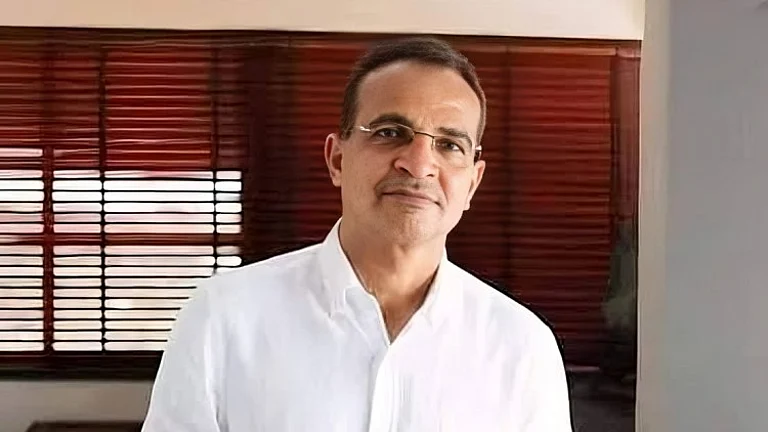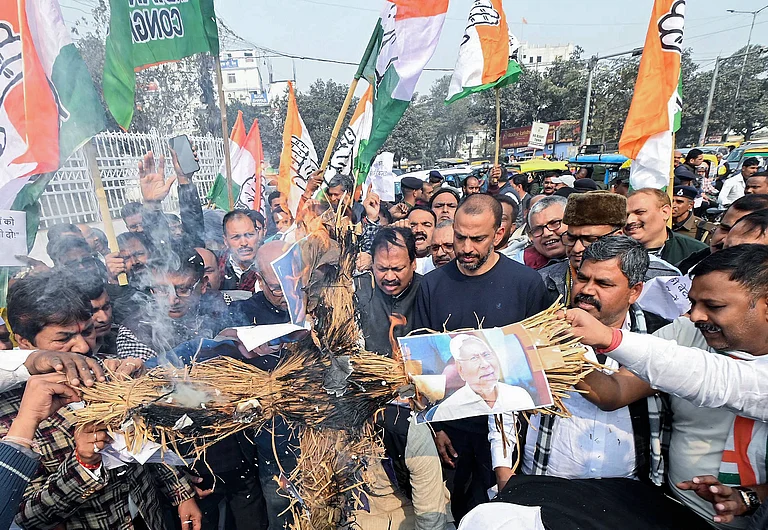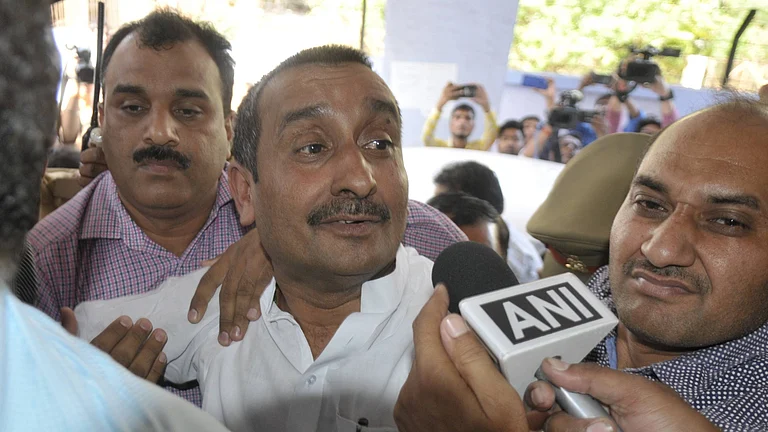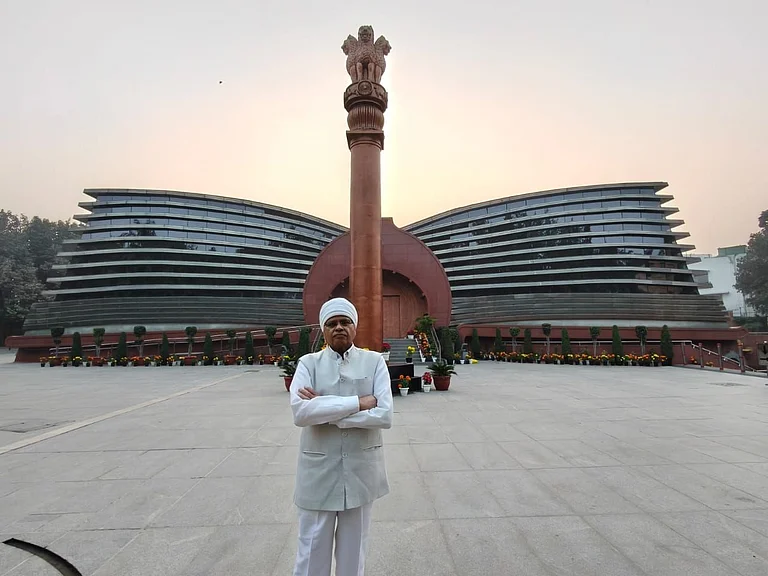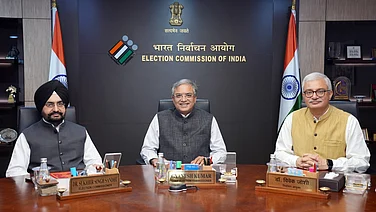In 2011, a 20-year-old married woman named Savitri (name changed) walked into a municipal hospital in Mumbai, soaked in blood and barely alive. She had been brutally raped by a man and covered in bruises on her entire body and genitals. The hospital treated her as a victim of sexual violence. However, when Savitri went to the police to file a case of rape, they refused because the perpetrator was Savitri’s husband of six months. While Savitri eventually managed to file a case against her husband under domestic abuse laws, the man's sexual crimes against his wife remain unprosecuted.
‘The concept of marital rape is not acceptable to a patriarchal society that treats women as property. We are fighting for women’s right to say no,” Mariam Dhawale, All India Democratic Women's Association told Outlook. Mariam is one of the petitioners who are fighting for the criminalisation of marital rape.
In January this year when a two-judge bench of the Delhi High Court started hearing a petition demanding the criminalisation of marital rape, several men in India went on a 'marriage strike' on Twitter, sort of a warning that they would no longer marry if marital rape was made a crime. Five months on, the two-judge bench comprising Justice Rajiv Shakdher and C Hari Shankar on Thursday passed a split judgement on the matter, opening the case up to further review from the Supreme Court.
Exception 2 to Section 375 of the Indian Penal Code (IPC) states that sexual intercourse by a man with his own wife is not rape. While Justice Rajiv Shakdher voted in favour of striking down the exception, Justice C Hari Shankar stated that sex between husband and wife can never be considered rape. He went on to state that it was not unconstitutional of the legislature to treat sexual acts between husband and wife, irrespective of whether they are consensual or forced, as different from non-consensual sexual acts between two strangers.
Senior advocate Mahalaxmi Pavani agrees that mixing bedrooms and courtrooms open up a host of legal issues. “It is a breach of privacy. How will we ensure whether the act was consensual or not?”. She adds that if non-consensual sex within marriage was criminalised, several men might end up facing false charges.
Centre for Social Research in Delhi director Ranjana Kumari, however, rubbishes the arguments and says that the judge’s verdict fails to make a distinction between acts of sex and rape. “Nowhere in Indian texts or legal books does it say that marriage is a licence for men to rape their wives. And sexual acts with women against her will or consent, whether they involve violence or not, are acts of rape, not sex,” Kumari says.
Mumbai-based activist and academic Padma-Bhate Deosthali and her team of researchers studied the service records of three public hospitals in the city for eight years, focusing on the profiles of women who came to report sexual violence and domestic abuse. The findings of the study were published in a paper titled 'Women’s experiences of marital rape and sexual violence within marriage in India: evidence from service records' in 2022. Out of the 1783 women registered during 2008–2017, 1416 were married. Of these, 58.5 per cent (828) women reported experiencing sexual violence from their husbands, 68 per cent of the 828 women reported “forced sex,” meaning forced penile penetration and 8 per cent of women reported that they had experienced “forced anal or oral penetration”.
Section 375 identifies all of these acts as rape. But due to exception 2 to the law which excludes marital rape, none of these cases was lodged in the police station as rape.
Exception of marital sexual violence from rape laws also makes it difficult for women who are separated or divorced from their husbands to seek justice. According to the 2013 amendment to rape laws, non-consensual sex between a man and his separated or divorced wife can be considered rape. But in most cases, police refuse to lodge cases against the ex-husband as they see previous sexual relations between the man and woman as justification for the man seeking sex.
As per the finding of her paper, Deosthali also said that out of 18 cases of married women coming to medical centres in Mumbai with the explicit complaint of sexual violence against their intimate partner in the last two years, about 50 per cent of the women were actually raped as per the current law since the perpetrators were separated or ex-husbands. However, their cases were not recorded as rape by the police. Besides these, a majority of women from marginalised sections do not have the option to even report the crime.
The argument that sexual assault by a husband is covered under the domestic violence laws also has loopholes. The problem said Deosthali, is with the exclusion of marital rape, it is hard to prosecute men for sexual violence under the domestic violence act as well. “Police often don’t file a case of rape or sexual violence because the perpetrator is the husband even when the victim clearly wants to file a rape complaint and is bearing all the signs of sexual assault”.
A working paper based on a comparison of NFHS and NCRB data in India indicated that less than 1 per cent of cases of sexual violence by the husband are reported to the police. However, informal data says that one in five women in India reports sexual violence from their husbands.







